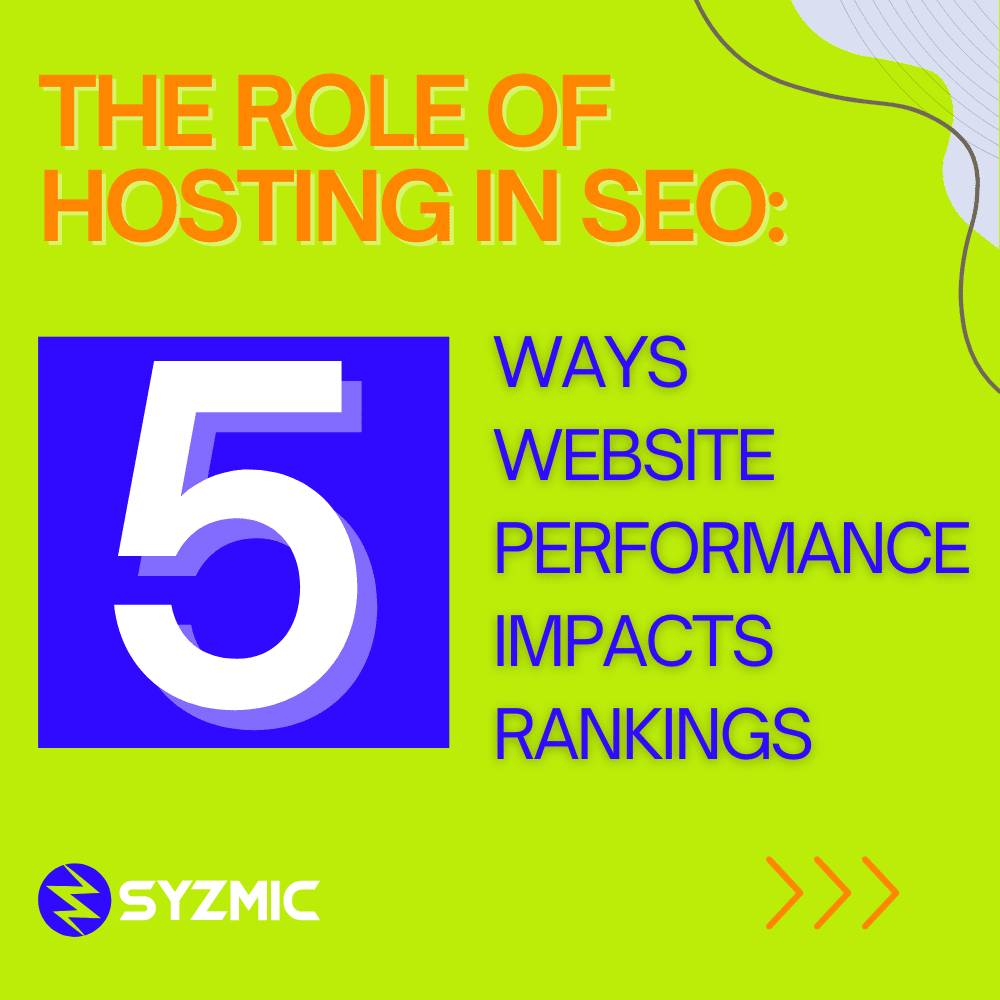In the ever-evolving landscape of digital marketing and online visibility, Search Engine Optimization (SEO) remains a cornerstone of success. As businesses strive to climb the search engine rankings and attract organic traffic, every aspect of a website’s architecture and performance comes under scrutiny. One often overlooked but crucial factor in the world of SEO is hosting. The hosting provider you choose and the performance of your hosting infrastructure play a significant role in determining your website’s search engine rankings. In this blog, we’ll delve into the intricate relationship between hosting and SEO, exploring how website performance impacts search engine rankings and user experiences.
Understanding the Connection: Hosting and SEO
In a world where user experience is paramount, search engines like Google emphasize delivering relevant and high-quality results to their users. One of the key indicators of a positive user experience is website speed and performance. This is where hosting comes into play. The hosting provider you select determines how quickly your website loads, how efficiently it handles user requests, and how consistently it remains accessible. These factors have a direct impact on user satisfaction and engagement, both of which are crucial in the eyes of search engines.
**1. Website Loading Speed and User Engagement:
Website loading speed is a fundamental component of user experience. It’s no surprise that users are increasingly impatient; they expect websites to load within seconds. Research has shown that users are more likely to abandon a website if it takes longer to load. A slow-loading website not only frustrates users but also leads to higher bounce rates, where visitors leave your site before interacting with your content. Search engines track these behaviors, using them as signals to determine the quality and relevance of a website.
Moreover, Google has explicitly stated that page speed is a ranking factor. In its quest to provide the best user experience, Google considers website loading speed as an indicator of quality. Faster-loading websites are more likely to rank higher in search engine results pages (SERPs), as Google aims to direct users to websites that offer optimal performance and a seamless experience.


**2. Mobile-Friendly Experience:
With the majority of internet users accessing websites from mobile devices, mobile-friendliness has become a critical aspect of SEO. Google’s mobile-first indexing means that the mobile version of a website is considered the primary version for indexing and ranking. Hosting that supports mobile optimization and quick loading on mobile devices is essential for maintaining a strong mobile presence. If your website’s hosting infrastructure isn’t optimized for mobile, your rankings can suffer, particularly in mobile search results.
**3. Uptime and Accessibility:
A reliable hosting provider ensures that your website remains accessible to users around the clock. Downtime – the period when your website is inaccessible – can negatively impact your search engine rankings. Frequent downtime not only frustrates users but also signals to search engines that your website is not reliable or of high quality. Search engines aim to provide users with reliable results, and websites that experience prolonged downtime might be seen as less trustworthy.
**4. Server Response Time:
Server response time refers to the time it takes for a web server to respond to a user’s request. A slow server response time can significantly hinder your website’s performance. If a search engine’s bot encounters slow server response times when crawling your site, it may not be able to index your pages effectively. This can lead to incomplete indexing and a lower likelihood of ranking well in search results.
**5. User Experience and Engagement:
User experience is a critical factor that search engines consider when ranking websites. Hosting indirectly influences user experience by affecting factors like page speed, mobile responsiveness, and downtime. A positive user experience leads to longer on-page engagement, lower bounce rates, and higher user satisfaction. All of these metrics send positive signals to search engines, indicating that your website is valuable and deserving of a higher ranking.
Improving Hosting for Better SEO Performance:
To harness the benefits of hosting for SEO, consider the following strategies:
- Choose a Reliable Hosting Provider: Opt for a reputable hosting provider that offers reliable servers, efficient support, and a track record of minimal downtime.
- Prioritize Speed and Performance: Select hosting plans that prioritize speed and performance. This may involve choosing a hosting type (such as VPS or dedicated hosting) that provides ample resources for your website’s needs.
- Utilize Content Delivery Networks (CDNs): CDNs distribute your website’s content across multiple servers, reducing the distance between users and the server. This leads to faster loading times and improved user experiences.
- Optimize Images and Content: Compress images and optimize content to reduce page size and enhance loading speed.
- Regularly Monitor and Maintain Your Website: Regularly monitor your website’s performance and address any issues promptly. This includes checking for broken links, optimizing database queries, and updating plugins.
- Implement Caching: Utilize caching mechanisms to store static versions of your website’s pages, reducing the load on the server and improving loading times.
- Keep Software Up to Date: Regularly update your Content Management System (CMS), plugins, and scripts to ensure they are compatible with the latest technologies and security patches.
Final Thoughts:
In the intricate web of SEO, every element contributes to a website’s success. Hosting, often considered the foundation of a website, is no exception. The performance, reliability, and user experience offered by your hosting infrastructure directly impact your search engine rankings. As search engines like Google continue to emphasize user-centric experiences, investing in quality hosting is not only a wise business decision but also an essential step toward achieving higher rankings and attracting organic traffic. By understanding the symbiotic relationship between hosting and SEO, businesses can pave the way to a more successful online presence.








0 Comments